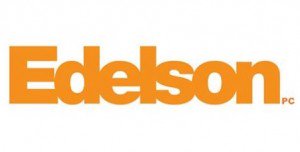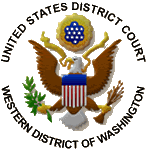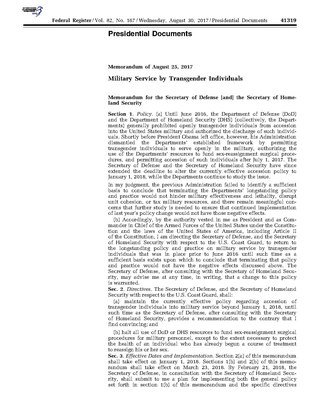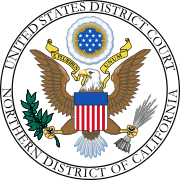
Alperin v. Vatican Bank was an unsuccessful class action suit by Holocaust survivors brought against the Vatican Bank and the Franciscan Order filed in San Francisco, California, on November 15, 1999. The case was initially dismissed as a political question by the District Court for the Northern District of California in 2003, but was reinstated in part by the Court of Appeals for the Ninth Circuit in 2005. That ruling attracted attention as a precedent at the intersection of the Alien Tort Claims Act (ATCA) and the Foreign Sovereign Immunities Act (FSIA).
The multinational technology corporation Apple Inc. has been a participant in various legal proceedings and claims since it began operation and, like its competitors and peers, engages in litigation in its normal course of business for a variety of reasons. In particular, Apple is known for and promotes itself as actively and aggressively enforcing its intellectual property interests. From the 1980s to the present, Apple has been plaintiff or defendant in civil actions in the United States and other countries. Some of these actions have determined significant case law for the information technology industry and many have captured the attention of the public and media. Apple's litigation generally involves intellectual property disputes, but the company has also been a party in lawsuits that include antitrust claims, consumer actions, commercial unfair trade practice suits, defamation claims, and corporate espionage, among other matters.

National Federation of the Blind v. Target Corporation, 452 F. Supp. 2d 946, was a class action lawsuit in the United States that was filed on February 7, 2006, in the Superior Court of California for the County of Alameda, and subsequently moved to federal court. The case challenged whether the Americans with Disabilities Act of 1990, specifically Title III's provisions prohibiting discrimination by "places of public accommodation", apply to websites and/or the Internet, or are restricted to physical places.
Arts and media industry trade groups, such as the International Federation of the Phonographic Industry (IFPI) and Motion Picture Association of America (MPAA), strongly oppose and attempt to prevent copyright infringement through file sharing. The organizations particularly target the distribution of files via the Internet using peer-to-peer software. Efforts by trade groups to curb such infringement have been unsuccessful with chronic, widespread and rampant infringement continuing largely unabated.
Beacon formed part of Facebook's advertisement system that sent data from external websites to Facebook, for the purpose of allowing targeted advertisements and allowing users to share their activities with their friends. Beacon reported to Facebook on Facebook's members' activities on third-party sites that also participated with Beacon. These activities were published in users' News Feed. This occurred even when users were not connected to Facebook, and happened without the knowledge of the Facebook user. The service was controversial and became the target of a class-action lawsuit, resulting in it shutting down in September 2009. One of the main concerns was that Beacon did not give the user the option to block the information from being sent to Facebook. Beacon was launched on November 6, 2007, with 44 partner websites. Mark Zuckerberg, CEO of Facebook, characterized Beacon on the Facebook Blog in November 2011 as a "mistake." Although Beacon was unsuccessful, it did pave the way for Facebook Connect, which has become widely popular.
Theodore Harold Frank is an American lawyer, activist, and legal writer based in Washington, D.C. He is the counsel of record and petitioner in Frank v. Gaos, the first Supreme Court case to deal with the issue of cy pres in class action settlements; he is one of the few Supreme Court attorneys ever to argue his own case. He wrote the vetting report of vice-presidential candidate Sarah Palin for the John McCain campaign in the 2008 presidential election. He founded the Center for Class Action Fairness (CCAF) in 2009; it temporarily merged with the Competitive Enterprise Institute in 2015, but as of 2019 CCAF is now part of the new Hamilton Lincoln Law Institute, a free-market nonprofit public-interest law firm founded by Frank and his CCAF colleague Melissa Holyoak.

The American Foundation for Equal Rights (AFER) was a nonprofit organization active in the United States from 2009 through 2015. The organization was established to support the plaintiffs in Hollingsworth v. Perry, a federal lawsuit challenging California's Proposition 8 under the Due Process and Equal Protection Clauses of the Fourteenth Amendment to the United States Constitution. AFER retained former United States Solicitor General Theodore B. Olson and David Boies to lead the legal team representing the plaintiffs challenging Proposition 8.

Google, Inc. v. American Blind and Wallpaper Factory, Inc., No. 5:03-cv-05340, was a decision of the United States District Court for the Northern District of California that challenged the legality of Google's AdWords program. The court concluded that, pending the outcome of a jury trial, Google AdWords may be in violation of trademark law because it (1) allowed arbitrary advertisers to key their ads to American Blind's trademarks and (2) may confuse search-engine users initially interested in visiting American Blind's website into visiting its competitors' websites.

Facebook, Inc. v. Power Ventures, Inc. is a lawsuit brought by Facebook in the United States District Court for the Northern District of California alleging that Power Ventures Inc., a third-party platform, collected user information from Facebook and displayed it on their own website. Facebook claimed violations of the CAN-SPAM Act, the Computer Fraud and Abuse Act ("CFAA"), and the California Comprehensive Computer Data Access and Fraud Act. According to Facebook, Power Ventures Inc. made copies of Facebook's website during the process of extracting user information. Facebook argued that this process causes both direct and indirect copyright infringement. In addition, Facebook alleged this process constitutes a violation of the Digital Millennium Copyright Act ("DMCA"). Finally, Facebook also asserted claims of both state and federal trademark infringement, as well as a claim under California's Unfair Competition Law ("UCL").

Edelson PC is an American plaintiffs' law firm that focuses on public client investigations, class actions, mass tort, and consumer protection laws. Edelson’s cases include class action settlements against Facebook for $650 million (2021), social casino apps for nearly $200 million (2021), and a $925 million verdict against ViSalus (2020.)

Lane vs. Facebook was a class-action lawsuit in the United States District Court for the Northern District of California regarding internet privacy and social media. In December 2007, Facebook launched Beacon, which resulted in users' private information being posted on Facebook without the users' consent. Facebook ended up terminating the Beacon program and created a $9.5 million fund for privacy and security. There was no monetary compensation awarded to Facebook users affected negatively by the Beacon program.

Pacific Century International, Ltd. v. Does 1-101, No. 4:11-cv-02533, is a court case where Pacific Century International requested to subpoena the names and identities of 101 BitTorrent users whose IP Addresses were tied to downloading one of their copyrighted works. The resulting court decision permitted Pacific Century International to subpoena the identity of Doe 1, but dismissed claims against Does 2-101 for failure to demonstrate that the Does had operated as a single group while distributing the torrent, preventing each users' subpoena request from being enjoined into a single court filing. This case set a precedent for disallowing filings against large groups of IP addresses used to distribute copyrighted works over peer-to-peer networks.

Jewel v. National Security Agency, 673 F.3d 902, was a class action lawsuit argued before the District Court for the Northern District of California and the Court of Appeals for the Ninth Circuit, filed by Electronic Frontier Foundation (EFF) on behalf of American citizens who believed that they had been surveilled by the National Security Agency (NSA) without a warrant. The EFF alleged that the NSA's surveillance program was an "illegal and unconstitutional program of dragnet communications surveillance" and claimed violations of the Fourth Amendment.

Hoang v. Amazon.com, Inc. et al. is a lawsuit brought by actress Junie Hoang in October 2011 against IMDb.com and its parent company Amazon.com for revealing her true date of birth, which she said opened her up to age discrimination. In March 2013, all of her claims against Amazon and all but one of her claims against IMDb were dismissed, and in April 2013, a jury found that IMDb was not liable for the remaining claim for breach of contract; the verdict was upheld on appeal.

Young v. Facebook, Inc., 790 F. Supp. 2d 1110, is a pro se internet law case in which the plaintiff sued the social network Facebook following the termination of her user account. In her original complaint, the plaintiff, Karen Beth Young, alleged violation of her First and Fourteenth Amendment rights, breach of contract, breach of the implied covenant of good faith and fair dealing, negligence, and fraud. In the U.S. District Court of Northern California, Facebook moved to dismiss the claim, and on October 25, 2010, presiding Judge Jeremy Fogel granted the motion to dismiss with leave to amend. Redirecting her complaint, Young alleged violations of the Americans with Disabilities Act and related state laws on disability, as well as breach of contract and negligence. Again, Facebook moved to dismiss, and Judge Fogel dismissed the case without leave to amend.

Amaretto Ranch Breedables, LLC v. Ozimals, Inc. was a copyright case in the United States District Court for the Northern District of California involving a DMCA takedown notice dispute between companies that produce virtual animals on Second Life. Ozimals filed a DMCA takedown notice to Linden Research, the makers of Second life, claiming that Amaretto's horse infringed on their bunnies and demanding their removal. Consequently, Amaretto responded with a counter-DMCA notice and applied to the court for a temporary restraining order to forbid Linden Research from removing their virtual horses. This was granted and held in effect as the case proceeded. Amaretto claimed in court that Ozimal's DMCA notice was copyright misuse and asked for a declaration that its horses did not infringe copyright. Ozimals counterclaimed for copyright infringement. The court eventually dismissed both claims.
High-Tech Employee Antitrust Litigation is a 2010 United States Department of Justice (DOJ) antitrust action and a 2013 civil class action against several Silicon Valley companies for alleged "no cold call" agreements which restrained the recruitment of high-tech employees.
Google has been involved in multiple lawsuits over issues such as privacy, advertising, intellectual property and various Google services such as Google Books and YouTube. The company's legal department expanded from one to nearly 100 lawyers in the first five years of business, and by 2014 had grown to around 400 lawyers. Google's Chief Legal Officer is Senior Vice President of Corporate Development David Drummond.

The Presidential Memorandum on Military Service by Transgender Individuals, officially the Presidential Memorandum for the Secretary of Defense and the Secretary of Homeland Security, is the 27th presidential memorandum signed by U.S. President Donald Trump on August 25, 2017. The intent was to prevent transgender people from serving in the U.S. military, on the basis that they would be a financial burden due to sex reassignment procedures and associated costs. Federal courts delayed the implementation of this rule by issuing four injunctions. On January 22, 2019, however, the U.S. Supreme Court allowed the Trump administration's ban to take effect.

The special motion to strike is a motion authorized by the California Code of Civil Procedure intended to stop strategic lawsuits against public participation (SLAPPs). They were created in 1992 with the purpose of encouraging participation in matters of public significance. The motion allows a litigant to strike a complaint when it arises from conduct in furtherance of the moving party's rights to petition or free speech in connection with a public issue. If the moving party prevails, they are entitled to attorney's fees by right. The motion is codified in section 425.16 of the Code. More than 300 published court opinions have interpreted and applied California's anti-SLAPP law. Because the right to file a special motion to strike is substantive immunity to suit, rather than a merely procedural right, federal courts apply the law to state law claims they hear under diversity jurisdiction.








